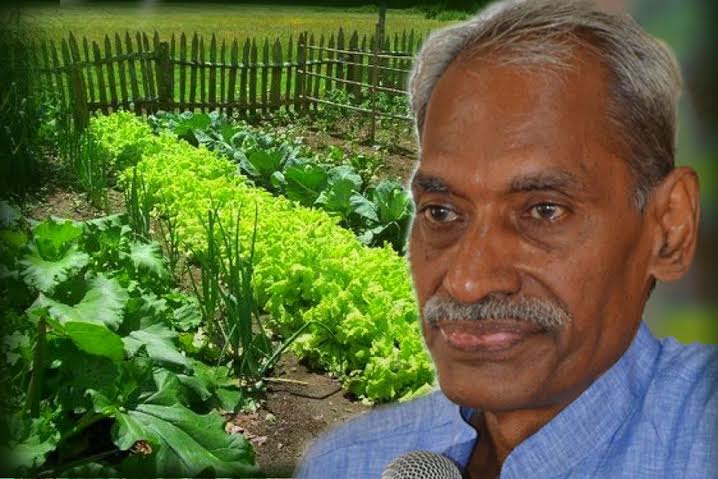
Meet Padma Shri Awardee Subhash Palekar, Who Innovated 'Zero Budget Natural Farming In India'
4 July 2016 7:11 AM GMT
66-year-old Subhash Palekar is also popularly known as “Krishi ka Rishi” by farming community across many parts of India because he is the brainchild of the Zero Budget Natural Farming model that has been able to bring a genesis in the farming method. And for this, Palekar won the Padma Shri award, making the farmer community of India proud.
Tryst with Chemical Farming
After completing his B.Sc in Agriculture in 1972, Palekar returned to his village Belora in Amravati, Maharashtra. He wanted to help his father and thus instructed him with new methods of fertilizers. Chemical fertilizers eventually gave a good production for almost a decade. But by 1985, the yield started to drop considerably with each passing days. And it was because of the chemical fertilizers. Thus began his quest to find a better alternative.
After extensive research, he tried to adopt the natural system that functions in forests, allowing to develop and nurture plants on its own. After experimenting with different techniques, Palekar came up with Zero Budget Natural Farming. The system, as the name suggests, involves a zero-budget, without spending money on fertilizers and pesticides, ensuring healthy growth of crops.
About Zero Budget Farming
Palekar draws his inspiration from ancient Indian farming techniques, at the heart of which is a formulation called ‘Jiwamrita’. The formulation contains a fermented solution containing 200 litres water, 5-10 litres cow urine, 10 kg dung, 1 kg each of gur (jaggery) and besan (gram flour), and a handful of soil from the farm bund — for every acre. The other important thing is to spread a carpet of harvested crop residue between crop rows, which helps to absorb moisture from the atmosphere and also prevents the emergence of weeds. The formula ensures healthy crop growth by nurturing thousands of essential bacteria. It can yield 5-6 quintals of cotton and 3-6 quintals of per acre in non-irrigated patches. On irrigated patches, these can go up to 10 quintals. The only cost incurred is the cost of buying seeds.
Popularity
Palekar’s work has been recognized by the Government of India. His findings have now benefited more than 40 lakh farmers in the country. Nowadays, he spends 25 days a month sharing his knowledge through seminars, lectures, workshops and field visits.
 All section
All section













